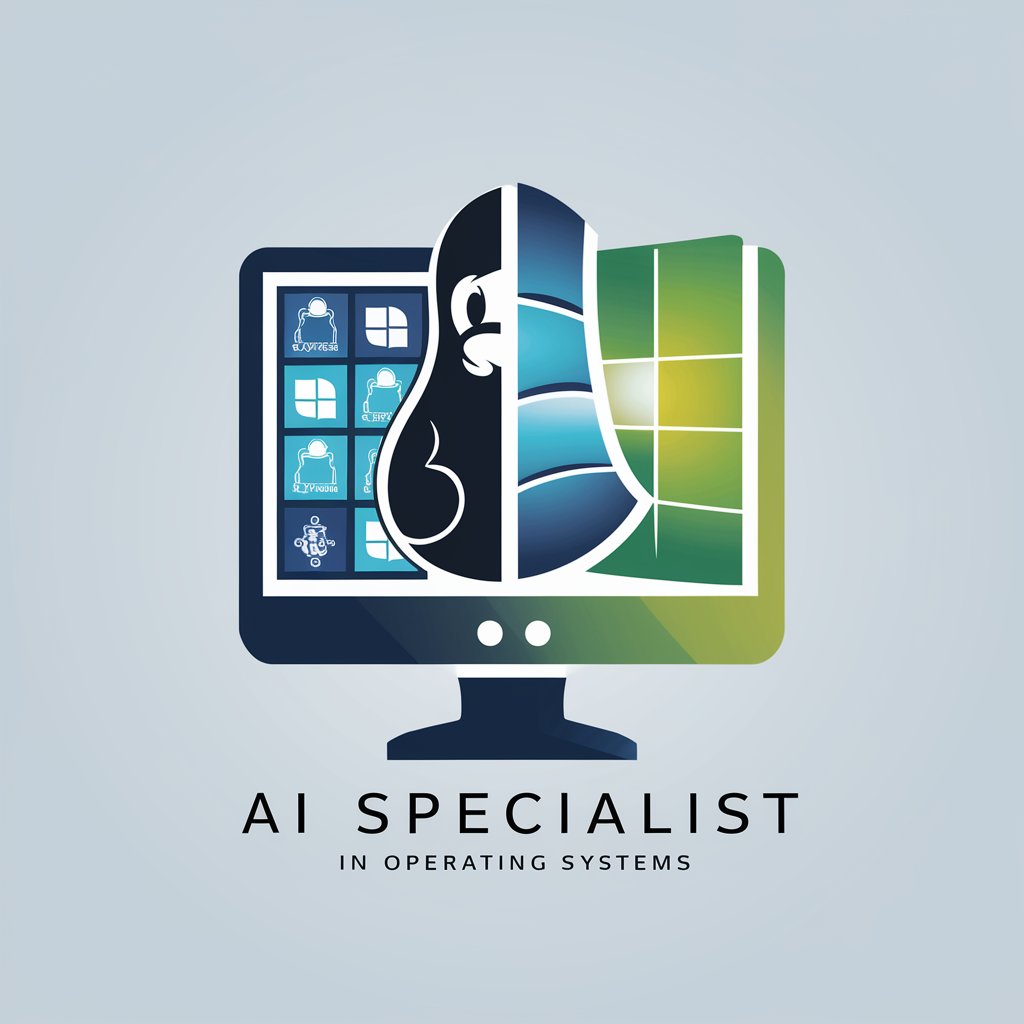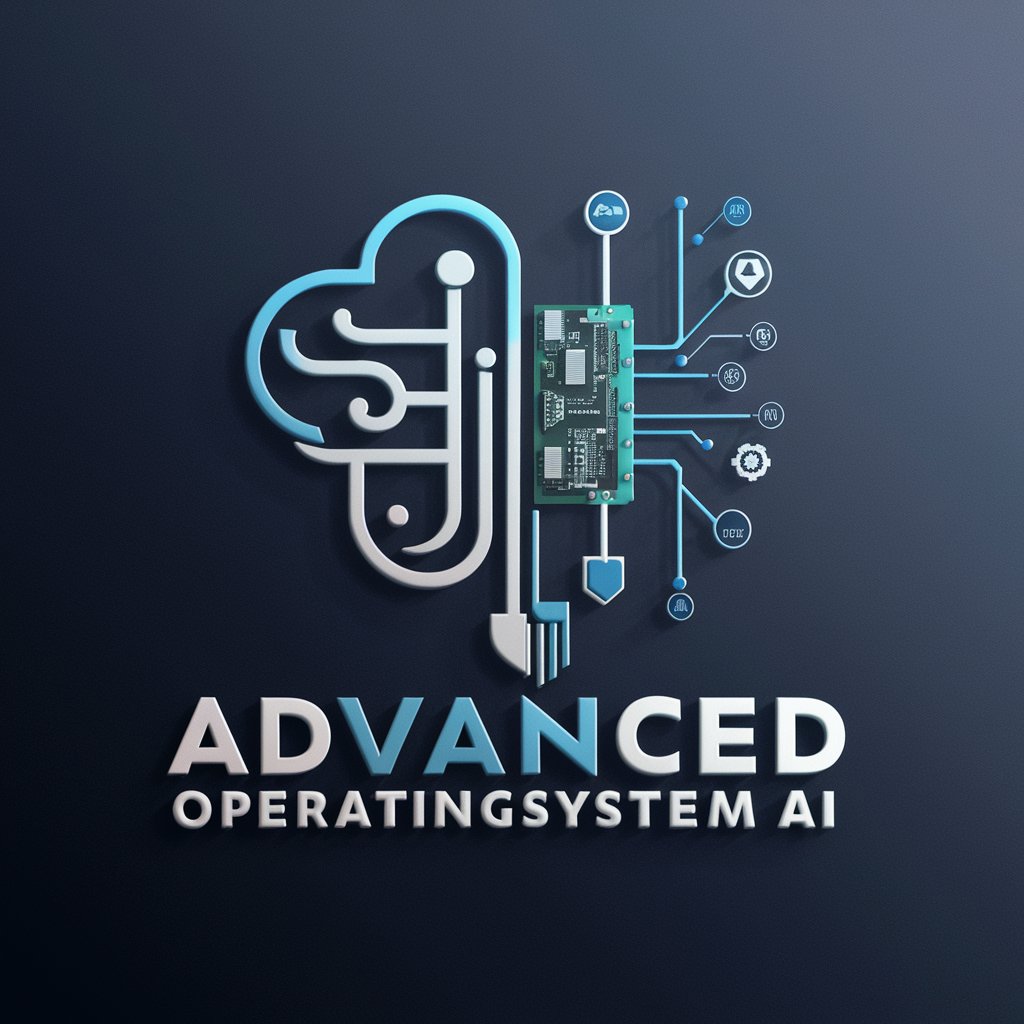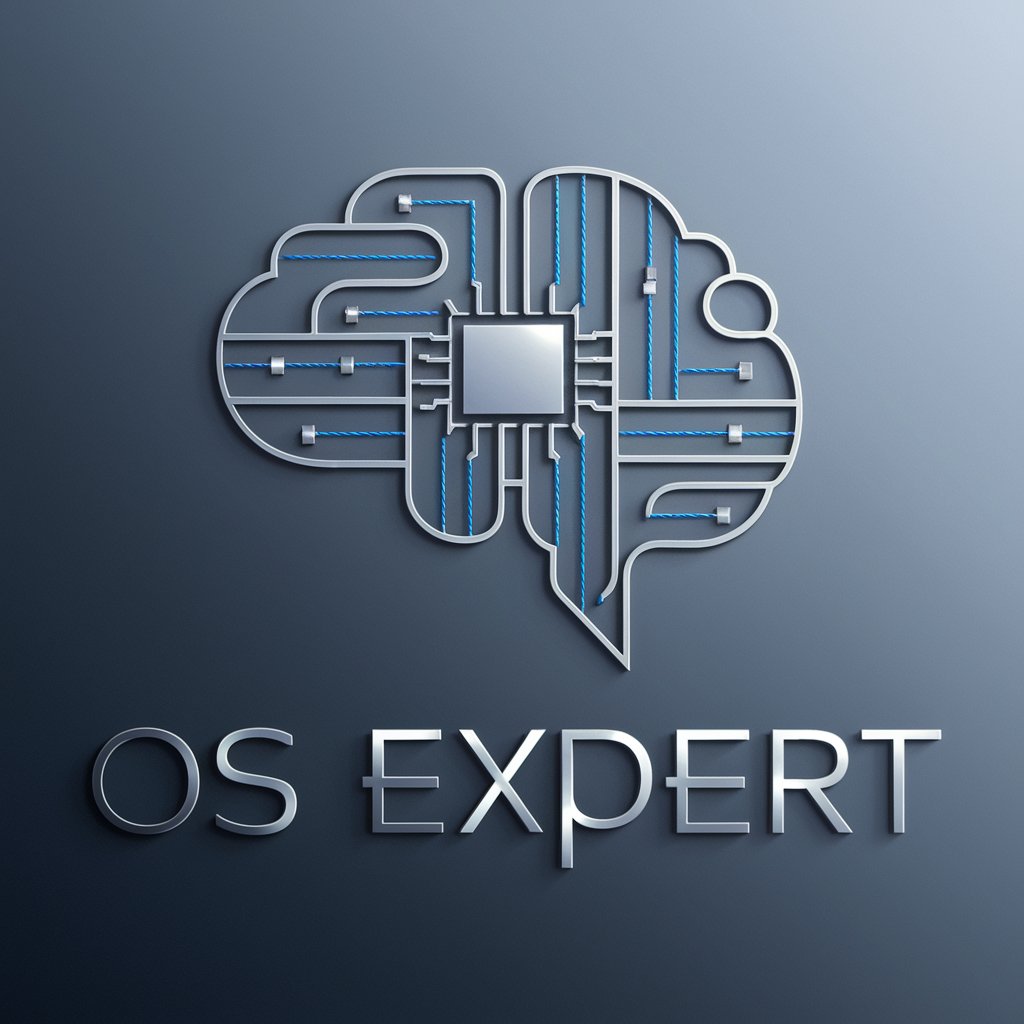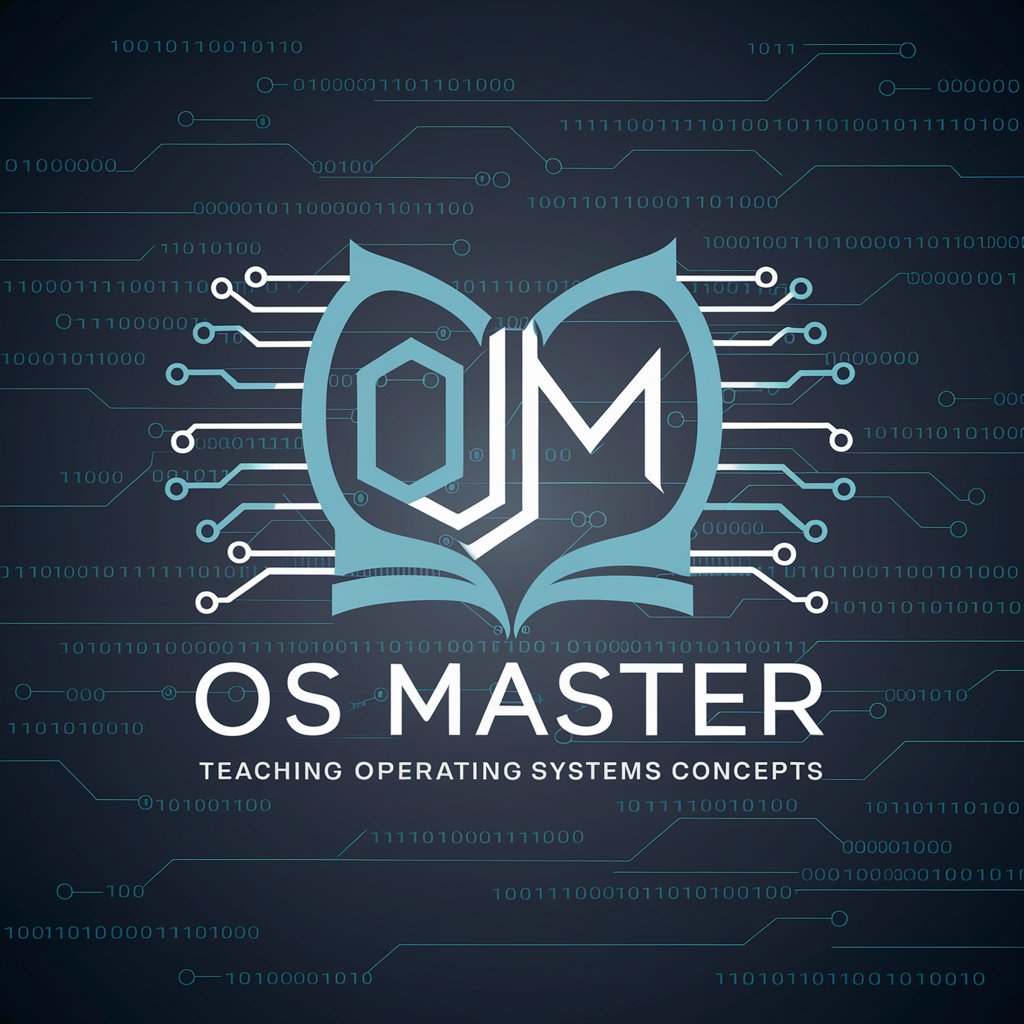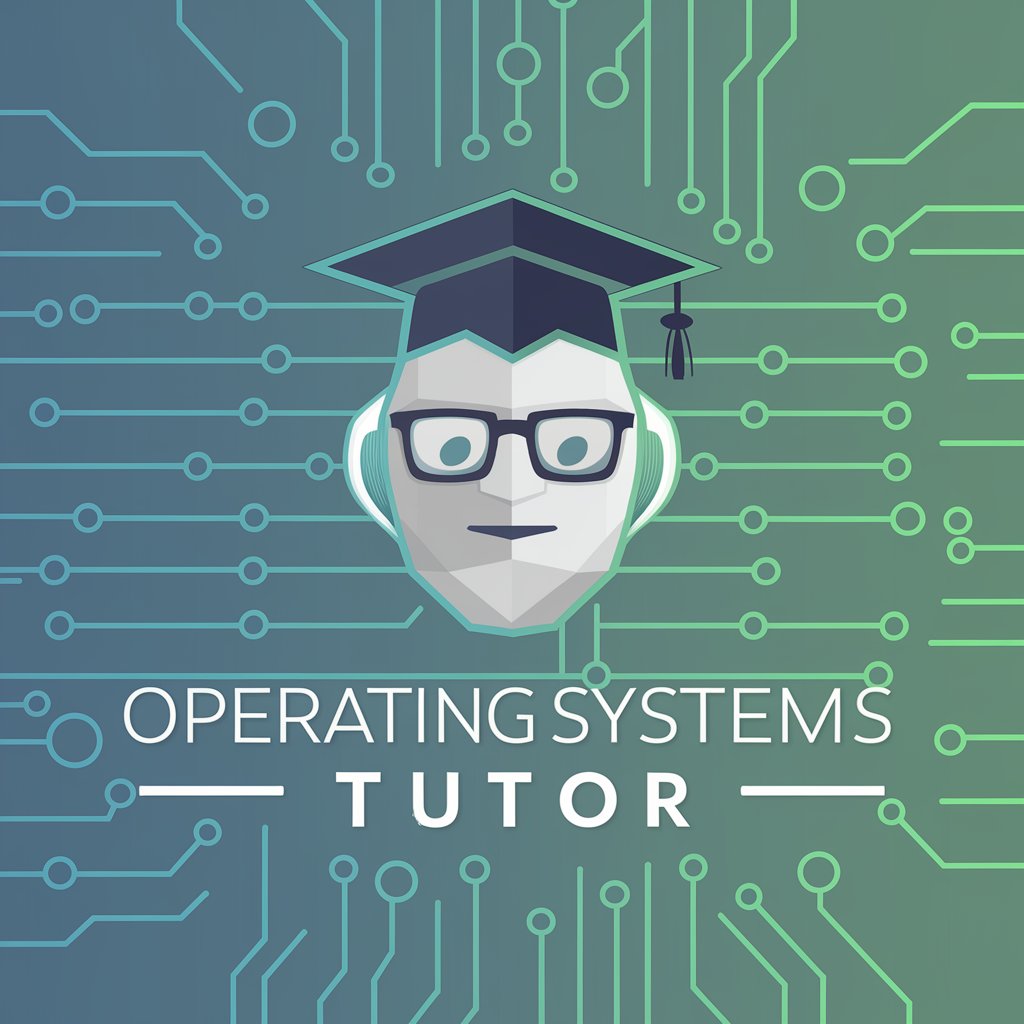
Operating System solver - OS Exam Prep Tool
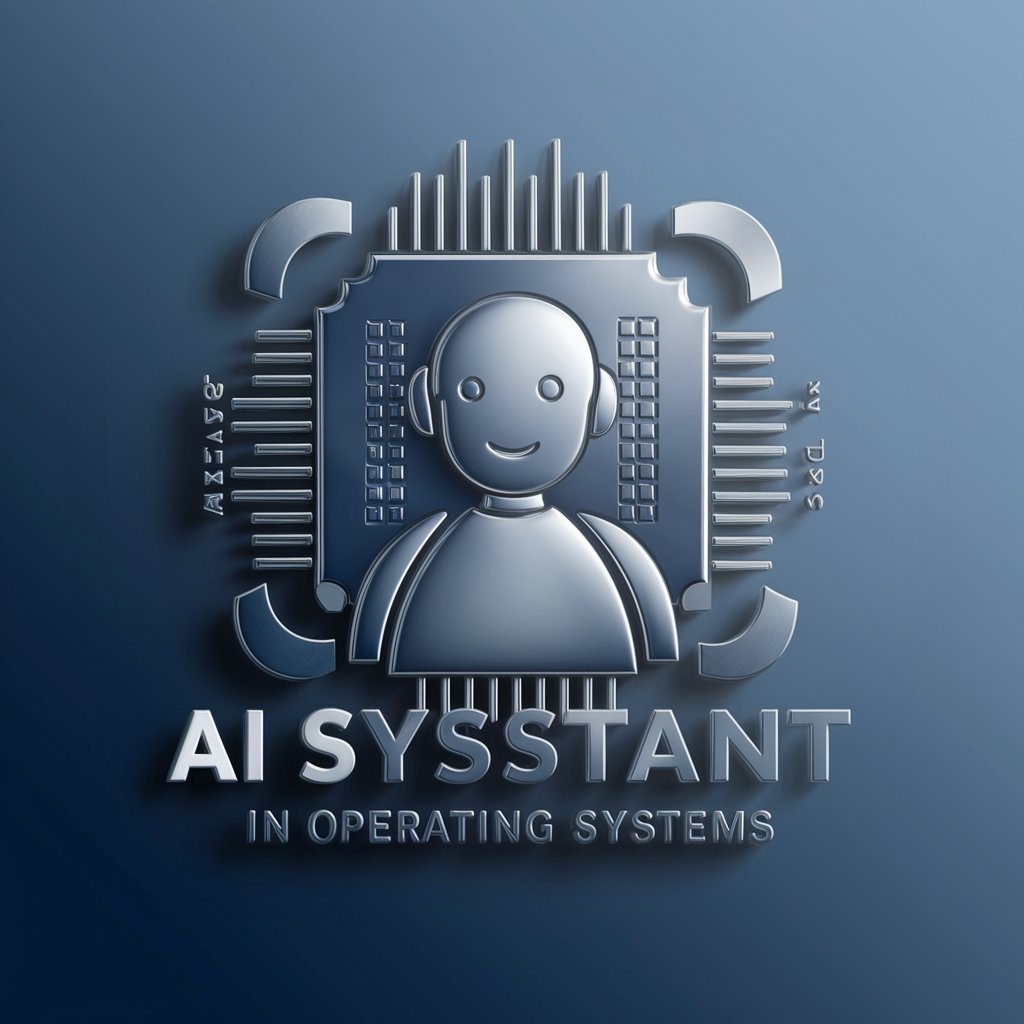
Hello! Ready to dive into operating systems?
Master Operating Systems with AI
Explain the role of a Process Control Block in an operating system.
Describe the differences between hard links and soft links in UNIX.
How does a round-robin scheduling algorithm work?
What are the advantages of using indexed file allocation over contiguous allocation?
Get Embed Code
Introduction to Operating System Solver
Operating System Solver is a specialized tool designed to assist students and professionals in understanding and solving complex problems related to operating systems. Its core functions encompass analyzing, interpreting, and generating solutions from specific PDF materials provided by course instructors or technical documents. The tool is particularly adept at handling questions on operating system architecture, Linux commands, scripting, process management, synchronization, scheduling, deadlocks, and laboratory practices. For example, a student struggling with the concept of context switching or process synchronization can upload their course PDFs, and the Operating System Solver will extract relevant information to provide a detailed explanation, code examples, or problem-solving techniques directly related to their query. Powered by ChatGPT-4o。

Main Functions of Operating System Solver
Content Understanding
Example
Analyzing a PDF on process management to explain how processes are created and managed in Linux.
Scenario
A student uploads a PDF containing information on process creation using fork() and wait() system calls. The Operating System Solver processes the PDF to extract relevant information, then explains these concepts and provides C code snippets as examples.
Code Solutions
Example
Providing a C code snippet for a semaphore-based solution to the Producer-Consumer problem.
Scenario
In response to a request for practical examples of inter-process communication, the Operating System Solver offers detailed C code examples, including explanations of how semaphores can be used to synchronize access to a shared buffer between producer and consumer processes.
Problem Solving
Example
Solving a scheduling algorithm problem and calculating average waiting time.
Scenario
A user needs help understanding how different scheduling algorithms affect process waiting time. The Operating System Solver analyzes the user's provided materials, outlines the algorithms' operations, and calculates the average waiting time with provided process information.
Efficient Review
Example
Summarizing key points on Linux file system management.
Scenario
Before an exam, a student seeks a quick revision on file system management in Linux. The Operating System Solver identifies and summarizes the main points from the uploaded PDFs, highlighting critical aspects like inode structure, file permissions, and commands for file manipulation.
Ideal Users of Operating System Solver Services
Computer Science Students
Students taking courses in operating systems who require assistance with understanding complex concepts, preparing for exams, or completing assignments. The Operating System Solver helps them by providing direct answers, code examples, and summaries from their course materials.
Educators and Instructors
Educators can use the Operating System Solver to create teaching materials, verify answers, or design new exam questions. The tool can help them extract and organize content from a vast range of sources to enhance their teaching resources.
Software Developers
Developers working on system-level programming who need quick references or examples for specific Linux commands, system calls, or threading mechanisms. The Operating System Solver offers practical solutions and code snippets that can be directly applied in development projects.

How to Use Operating System Solver
Start Free Trial
Visit yeschat.ai for a complimentary trial experience without the need for login credentials or ChatGPT Plus subscription.
Upload Materials
Provide your Operating System course materials in PDF format by uploading them directly onto the platform.
Pose Your Questions
Submit specific questions or topics you need assistance with related to Operating Systems.
Receive Answers
Get concise, accurate responses, including definitions, code snippets, and explanations based on your provided materials.
Revise and Ask More
For further clarification or additional questions, feel free to revise your queries or explore other topics within Operating Systems.
Try other advanced and practical GPTs
Operating Systems Study Guide
Empowering learning with AI-driven insights
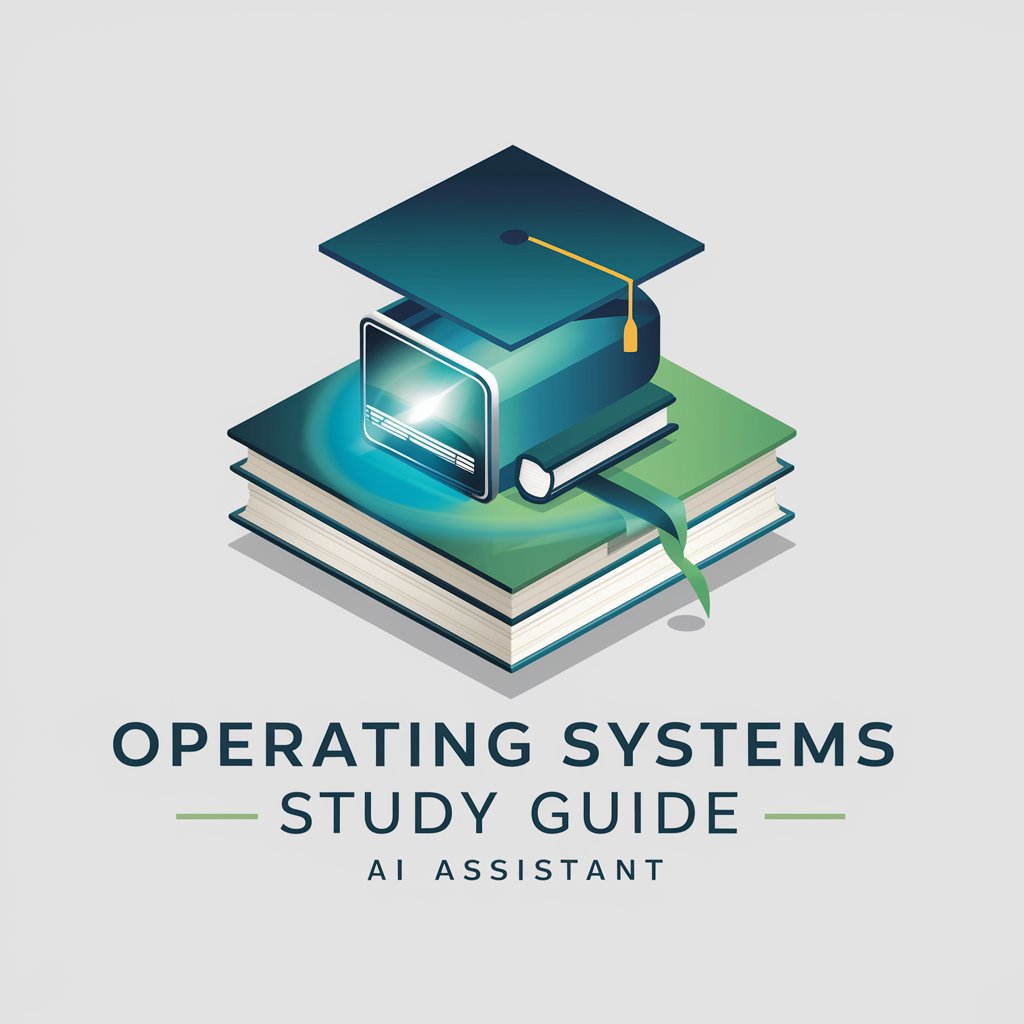
Operating System Assistant
Master Operating Systems with AI

Customer Requirements Questionnaire Creator
Crafting Tailored Questions with AI Precision

Requirement Analyst
Empowering design with AI-driven analysis

System Requirement Architect Supporter
Architecting Your Requirements with AI
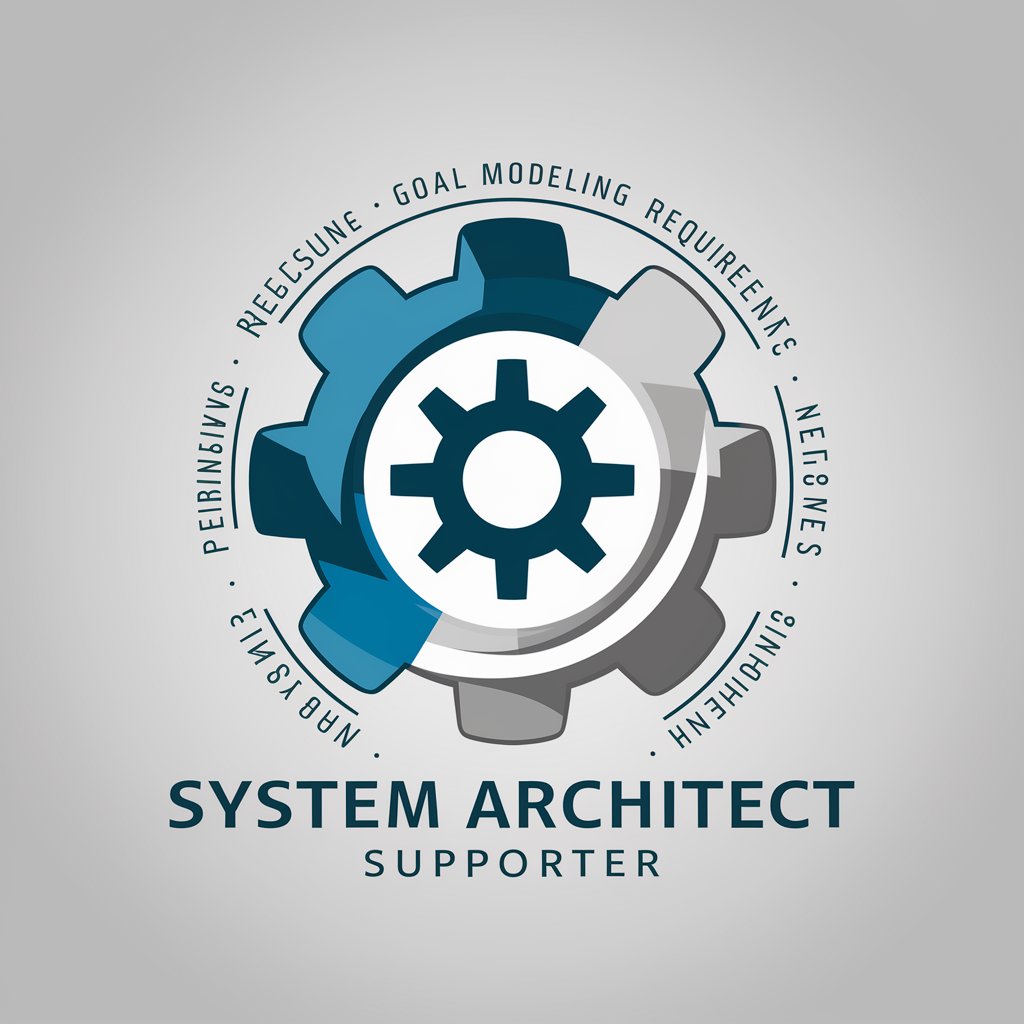
SODA.Auto Requirement Assistant
Refine Auto Specs with AI Precision

Don't Look Away meaning?
Explore, Understand, Engage - AI-Powered

Look Up History
Explore History with AI

You Look Marvelous
Elevate Your Day with AI Compliments

Simpsonize My Look AI
Turn Anyone into a Simpsons Character

AI Look
Styling you for every weather, effortlessly.

ICD-10 Code look up
Effortless ICD-10 coding with AI

Frequently Asked Questions About Operating System Solver
What types of operating system concepts can Operating System Solver assist with?
Operating System Solver can assist with a wide range of concepts including process management, memory management, file systems, synchronization, and security, among others.
Can Operating System Solver provide code examples?
Yes, it can generate and explain C code snippets for system calls, process and thread management, inter-process communication, and synchronization techniques, referencing specific examples or concepts mentioned in your course materials.
How does Operating System Solver ensure the relevance of its answers?
By analyzing and interpreting the information from the provided PDF materials, it tailors responses to the context of your course, ensuring relevance and accuracy.
Is Operating System Solver suitable for exam preparation?
Absolutely, it's designed to assist students in preparing for exams by offering detailed explanations, key summaries, and problem-solving techniques specific to their syllabus and exam format.
Can Operating System Solver help with both theoretical and practical operating system problems?
Yes, it is equipped to provide solutions and explanations for both theoretical concepts and practical applications within the realm of operating systems.

